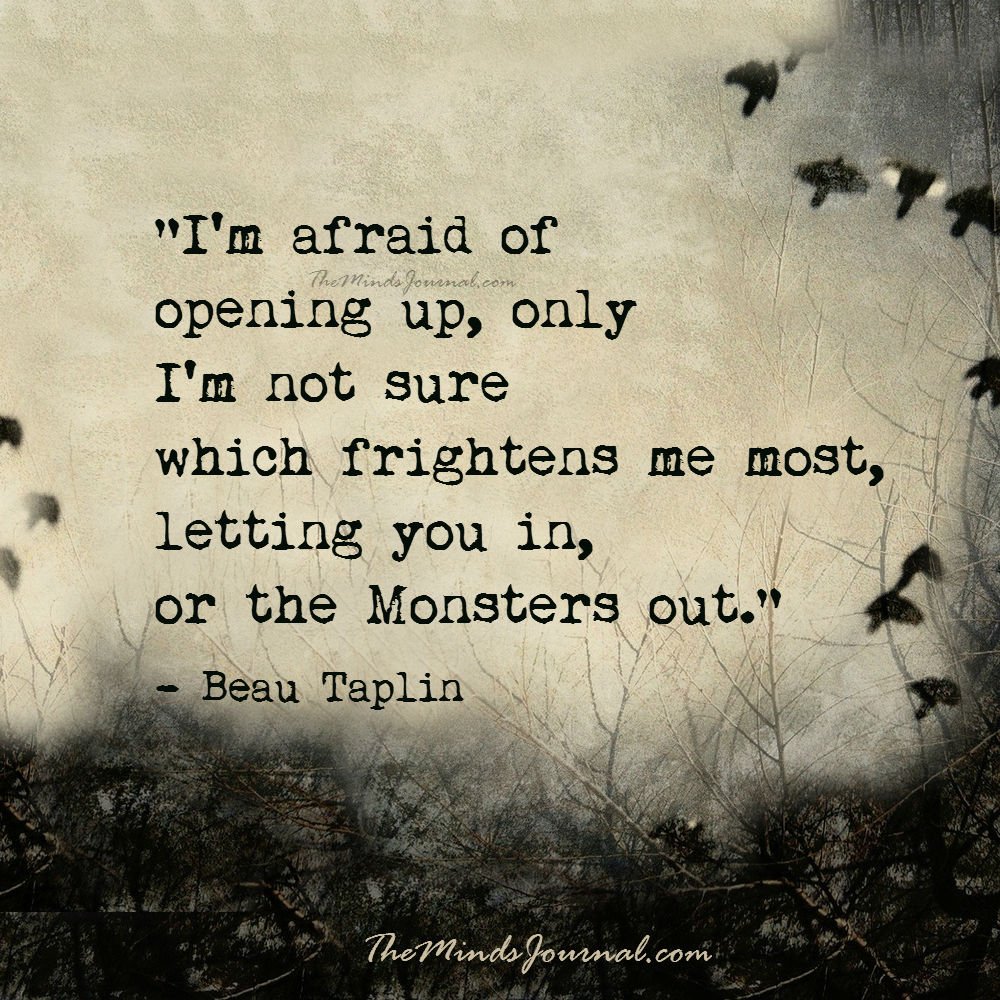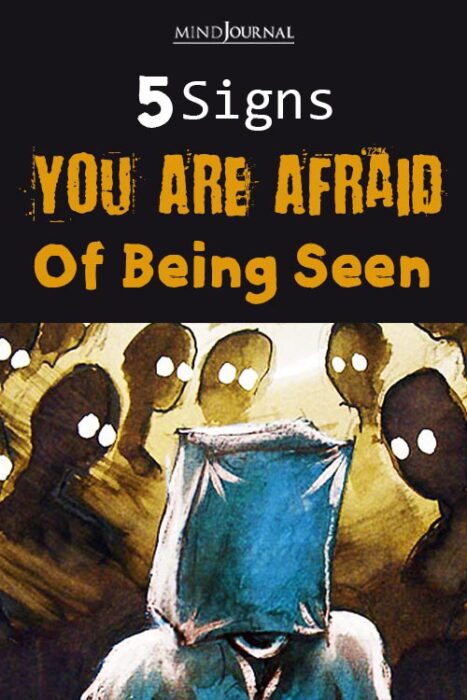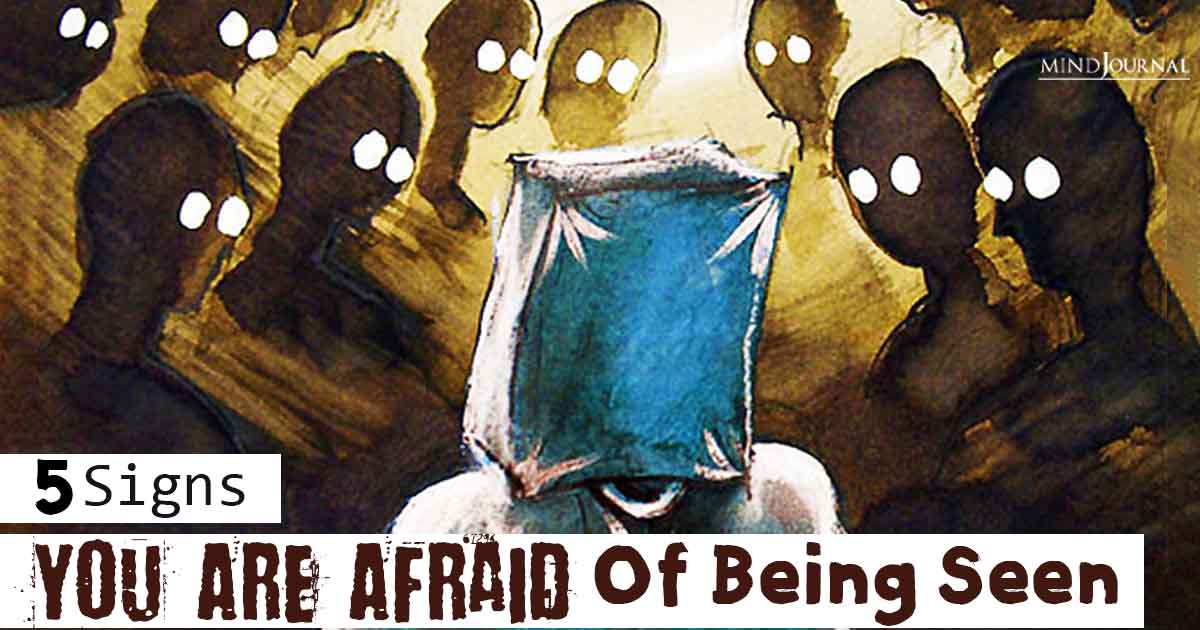Do you ever feel like you are afraid of being seen, and that’s why you have erected several walls around you so that no one can see your vulnerable side? This article is going to explore five signs you are afraid of being seen and what the fear of being seen really means.
Deep down, most of us want to be seen and accepted for who we are. Showing up fully in your relationships and allowing yourself to be seen is a vulnerable experience that requires you to let your guard down.
On the one hand, taking such a risk can feel incredibly anxiety-provoking, while on the other hand, not taking such a risk can cause your relationships to feel stagnant and block them from growing.
The fear of being seen for who you really are can be a deep-rooted fear that you may not even be aware is impacting your relationships. If the need to be accepted for who you are wasn’t met early on or during a crucial stage of development, you may yearn for a deeper connection with others but subconsciously build up barriers against it to protect yourself.
You may have grown up in a family that pushed certain norms or rules that didn’t feel authentic to you, or perhaps their love for you felt conditional and there wasn’t space or acknowledgment for your true feelings, needs, and preferences.
Alternatively, being bullied or misunderstood by peers might have created a similar experience for you.
As a result, you may long to be seen and accepted for who you truly are but associate being seen with feeling unsafe and rejected. Feeling connected to others is an innate human need, so if this need was perceived as a threat when you were growing up, you may have sacrificed your authenticity to maintain your connection with others.
You may not even realize the effect this fear has had on you as many of these coping patterns become automatic over time and can operate outside of your conscious awareness.
Related: How To Stay Strong And Trust Again When You’ve Been Hurt Before
5 Signs You Are Afraid Of Being Seen
If you’re wondering whether the fear of being seen for who you are is impacting your relationships, consider the following signs.
1. You often feel lonely or isolated even if you have many friends.
2. You keep others at arm’s length by masking the parts of yourself that you deem unworthy to show them.
3. You over-function in your relationships, often focusing exclusively on the other person’s needs without ever voicing your own.
4. You struggle with perfectionism and work hard to obtain approval from others in order to prevent rejection.
5. You distance yourself from others or self-sabotage as soon as you start to get close in various ways by rejecting them before they can reject you.

All of these signs are ways you may have learned to cope to protect yourself from rejection and having the same painful experience from the past.
The hidden cost of these coping strategies is that keeping others at arm’s length only allows your relationships to progress to a certain level of connection before they plateau or become stagnant.
If you learned to associate being authentic with being rejected as a result of your past experiences, it makes sense that you would protect yourself in these various ways.
If you struggle with the fear of being seen, it may be helpful to reflect about what it is costing you to continue to allow this fear to influence your decisions. Consider testing the waters by choosing to reveal a low-risk share with someone in your life.
It doesn’t matter what you share as long as it doesn’t feel high stakes and feels authentic to you. This might look like telling someone you miss them or sharing an opinion you have that hasn’t been shared with others yet.
Related: Why You Should Get To Know Your Fears
Another option to consider is individual therapy and/or a support group. Being in a supportive space with others who are sharing authentically may help you to feel more comfortable doing so and if a group setting feels too overwhelming, individual therapy can be a great alternative option where you can address the fear of being seen in a safe space.
Ready to create more satisfying relationships? Dr. Roxy’s free Relationship Needs Guide can help you identify what you want from a relationship, whether you’re single or in a relationship. Sign up for her monthly emails here and download your copy today.
Written By Roxy Zarrabi Originally Appeared On Psychology Today









Leave a Reply
You must be logged in to post a comment.